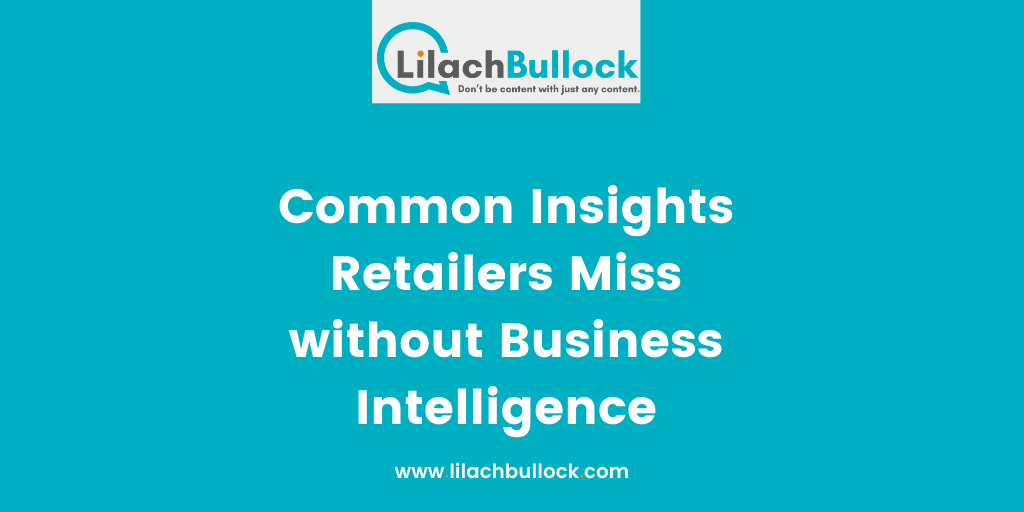Follow Lilach

Common Insights Retailers Miss without Business Intelligence
Retail often has an image in people’s heads of being an old-school industry. People refer to physical retail locations as “brick-and-mortar.” We call small businesses “mom-and-pop shops.” But just because consumers often think of retail as traditional, doesn’t mean retailers need to be stuck in the past. Online retailers are certainly at an advantage on this front, as rudimentary BI tools are often included with online store resources. But physical retailers need to get on board with BI if they expect to compete in the future. The benefits associated with using data-driven analytics are undeniable. Despite this, only about 10 percent of organizations have currently adopted a Chief Analytic Officer. Here are some of the top insights retailers are missing without business intelligence.
Common Insights Retailers Miss without Business Intelligence
Real-Time Sales Fluctuations
Most retailers still record data and track KPIs to some degree even if they aren’t using BI tools. Otherwise, they would have no way of gauging success other than the amount of money in their bank account. This strategy won’t work for long in the modern economy, where the top dogs are making decisions based on actual data. Real-time sales fluctuations is one highly useful KPI made possible by BI. This simply isn’t possible without BI tools.
Consumer Lifetime Value
Consumer lifetime value is a calculation that tells business owners how much money they make from people who buy their goods. This is typically calculated by subtracting costs of acquisition and service from lifetime revenue. In most cases this is done on an average basis, which requires a lot of work when done without BI. But this can be an extremely helpful metric, as it shows exactly how much a business is making on consumers versus spending on getting new customers.
Unexpected, Discrete Trends
Oftentimes, you don’t know what you’re going to discover with BI until you start looking through data trends. This is one of the ways BI in retail industry makes itself highly valuable. Without BI, leveraging data-driven analytics is essentially out of the question for retailers. It’s far too time-consuming to manually record and pore over all the data necessary to uncover any hidden trends. But with BI, these can be found with relative ease.
Average Customer Spend
This KPI is just the average amount the average customer has spent at your store over the course of their time shopping with you. This is slightly different than consumer lifetime value because it doesn’t factor in acquisition costs. Regardless, this is an extremely useful metric for retailers. It can be further broken down into product specific categories when analyzed with BI software.
Consumer Migration
You will know one of your stores isn’t performing up to snuff when your quarterly report shows that sales are down. But by that point, it might be too late to turn the ship around. Tracking real-time consumer migration between store locations can help retailers make quick decisions about inventory, staffing, and other factors. Having real-time pulse on this information can save retailers a lot of money.
Tracking Competitors
Unless you have a truly one-of-a-kind product, it’s probably not going to be enough to just track your own metrics. If you know your competitors, you should be keeping tabs on any of their data that you can legally access. Having this information seamlessly integrated into your BI platform will put your organization at a distinct advantage. Putting together a custom dashboard for each of your competitors will have you sitting pretty. These insights are next to impossible without a BI platform.
There are so many reasons why retailers need to get on board with BI. The benefits clearly outweigh the risks. And probably the greatest risk of all is doing nothing while competitors adopt BI for their organizations.

Follow Lilach















